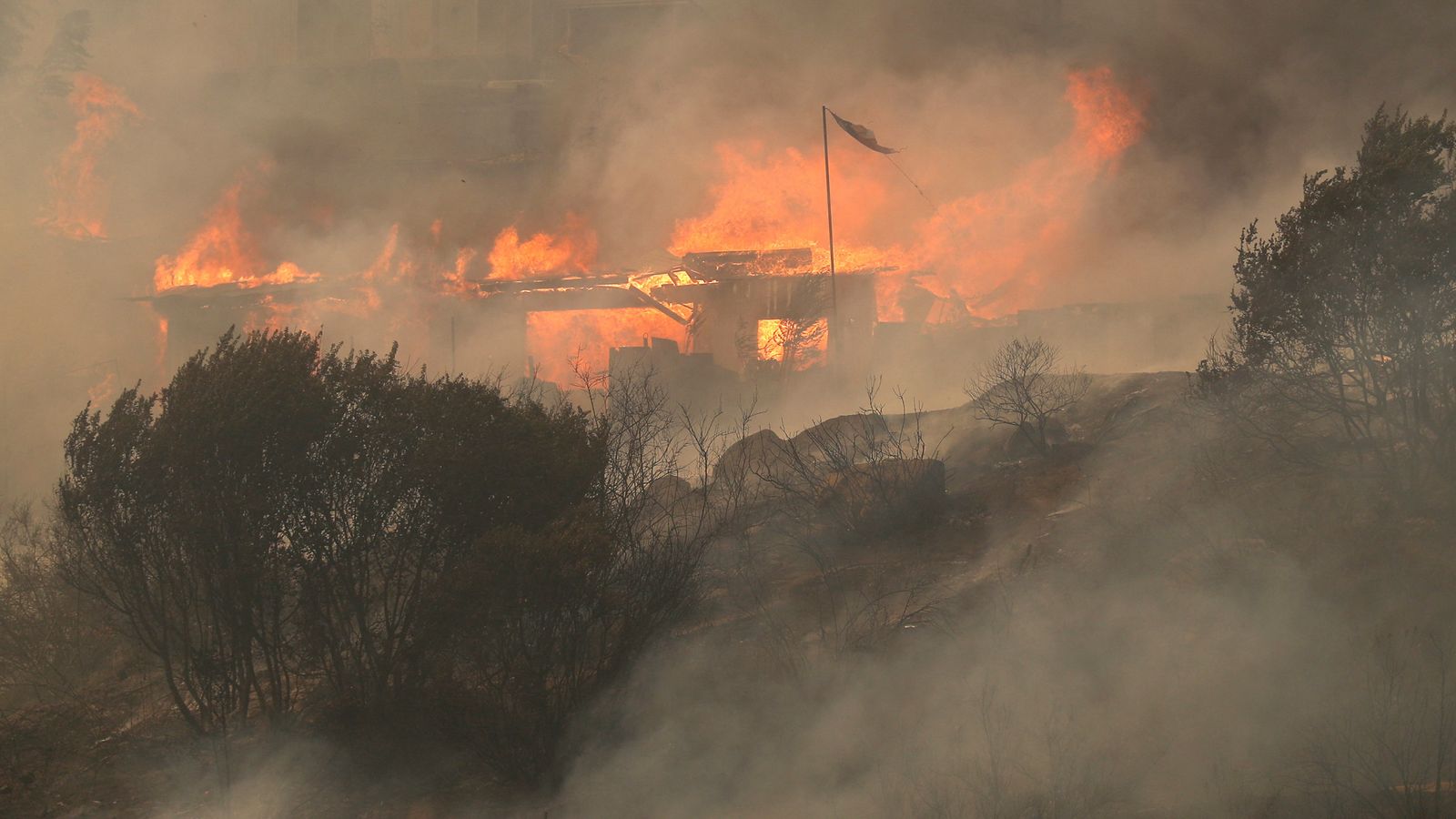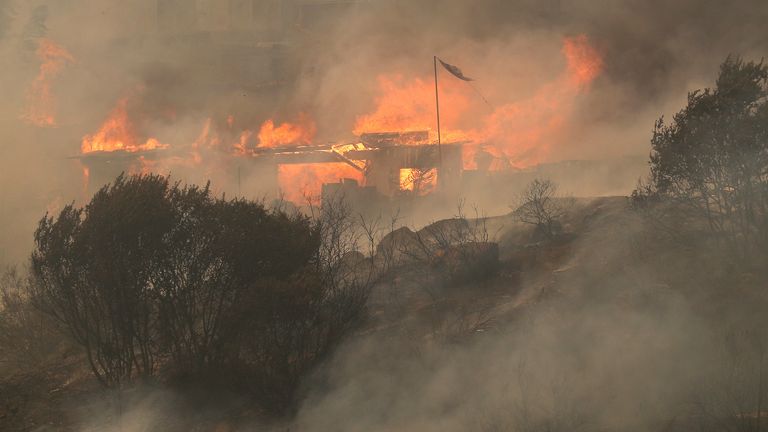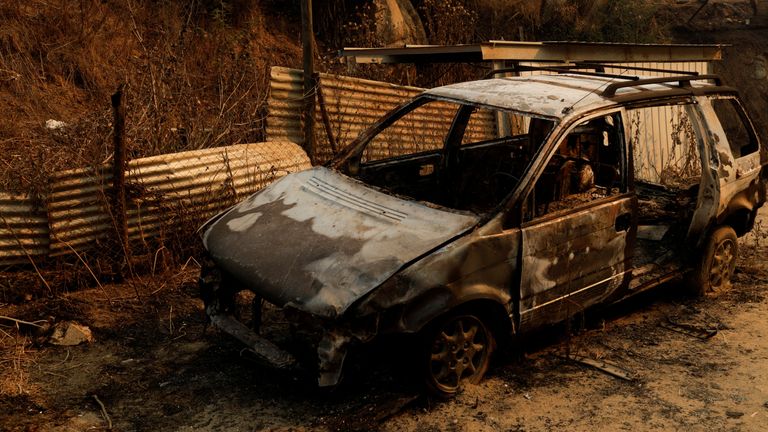Raging wildfires in Chile have killed at least 51 people and the number of dead is likely to keep rising as emergency workers battle the flames threatening urban areas.
Thousands of people have been forced to flee and hundreds of homes have been destroyed by the blazes which have sent black smoke billowing over many parts of the central Valparaiso region and caused power cuts.
Four hospitals and three old people’s homes have also had to be evacuated.
More than 450 firefighters have been drafted in and 19 helicopters deployed to try and tackle the outbreaks in Chile.
Areas around the coastal tourist city of Vina del Mar, located some 75 miles (122km) from the capital Santiago, have been some of the hardest hit with rescue teams struggling to reach all the affected communities.
Referring to the number of dead, interior minister Carolina Toha said: “We are going to reach much higher figures.
“The condition of Valparaiso is the most delicate,” she added and warned the country was facing its worst disaster since a 2010 earthquake that killed about 500 people.
She said the greatest concern was some of the fires were spreading very close to urban areas “with the very high potential to affect people, homes and facilities”.
Speaking in a national televised address, President Gabriel Boric said: “The situation is really very difficult.”
He urged Chileans to cooperate with rescue workers.
“If you are told to evacuate don’t hesitate to do it,” he said.
“The fires are advancing fast and climatic conditions have made them difficult to control. There are high temperatures, strong winds and low humidity.”
In Villa Independencia, a hillside neighbourhood on the eastern edge of Vina del Mar, fire has ripped through properties and businesses and wrecked cars, leaving the streets smothered in ash.
Read more on Sky News:
US and UK launch fresh strikes against 36 Houthi targets in Yemen
New images released by police hunting Clapham chemical attack suspect
Rolando Fernández, one of the residents who was forced to run for his life and lost his home to the advancing flames, said: “I’ve been here 32 years, and never imagined this would happen.
“I’ve worked my whole life, and now I’m left with nothing.”
The El Nino weather system has caused droughts and hotter-than-usual temperatures along the west of South America this year, increasing the risk of forest fires.
In January, more than 42,000 acres (17,000 hectares) of forests were destroyed in Colombia by fires that followed several weeks of dry weather.














Post comments (0)